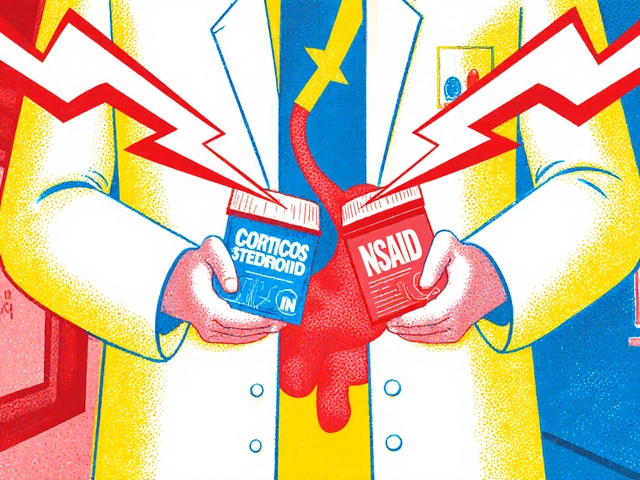Heart Rhythm Disorders: What They Are and How to Deal With Them
If your heart feels like it’s skipping beats or racing for no reason, you might be experiencing a heart rhythm disorder. These problems happen when the electrical signals that keep your heart beating get out of sync. The result can be a fast heartbeat (tachycardia), a slow one (bradycardia), or an irregular pattern called arrhythmia.
Most people think heart rhythm issues are rare, but they affect millions worldwide. Some show up after a heart attack, others pop up without any obvious cause. The good news is that many disorders can be spotted early and treated with lifestyle changes, medication, or simple procedures.
Common Types of Heart Rhythm Problems
Atrial fibrillation (AFib) is the most frequent irregular heartbeat. It makes the upper chambers of your heart quiver instead of squeezing properly. You might feel palpitations, shortness of breath, or fatigue.
Ventricular tachycardia speeds up the lower chambers and can be dangerous if it lasts long. Symptoms include dizziness, chest pain, or fainting.
Bradycardia slows the heart below 60 beats per minute. Many people with bradycardia feel tired, confused, or notice a slow pulse when checking their wrist.
Other patterns like premature beats (extra beats that pop up early) are usually harmless but can be annoying. Knowing which type you have helps your doctor pick the right treatment.
How to Manage & When to Seek Help
The first step is a proper diagnosis. A simple ECG at your doctor’s office can catch most rhythm problems. For deeper insight, you might get a Holter monitor (24‑hour recording) or an event recorder that you wear for weeks.
Lifestyle tweaks make a big difference. Cutting back on caffeine, alcohol, and nicotine reduces triggers for many arrhythmias. Regular exercise improves overall heart health, but talk to your doctor before starting if you have an irregular heartbeat.
If medication is needed, doctors often prescribe beta‑blockers or calcium channel blockers to slow the heart down. For AFib, blood thinners lower stroke risk. In some cases, a procedure called catheter ablation removes the faulty electrical pathway.
Watch for warning signs: sudden chest pain, fainting spells, or a rapid heartbeat that doesn’t go away after a few minutes. Those symptoms mean you need urgent medical attention.
Our tag page also links to articles that can help manage heart‑related issues. For example, the “Torsemide: Benefits, Dosage, Side Effects, and Tips for Safe Use” guide explains a diuretic often used in heart failure patients to reduce fluid buildup. The “Zantac: What Really Happened, Safety, and Alternatives Explained” piece covers a drug that was once common for heartburn but raised safety concerns—useful if you’re reviewing all medications that affect your heart.
Bottom line: heart rhythm disorders are manageable when you know the signs and act early. Keep track of any unusual beats, talk to a healthcare professional, and follow proven lifestyle steps. With the right mix of monitoring, medication, and habits, you can keep your heart beating steady and strong.

- May 7, 2023
- Posted by Cillian Osterfield
The Connection Between Stress and Heart Rhythm Disorders
As a blogger, I've recently discovered the connection between stress and heart rhythm disorders. It turns out that chronic stress can negatively affect our heart health, leading to abnormal heart rhythms, also known as arrhythmias. This connection is primarily due to stress hormones, such as cortisol and adrenaline, which can cause our heart to beat faster and less efficiently. In my research, I found that managing stress through relaxation techniques and exercise can greatly reduce the risk of developing heart rhythm disorders. It's important for all of us to prioritize our mental health, as it has a direct impact on our physical well-being, particularly our heart health.
Categories
- Health and Wellness (72)
- Medications (69)
- Health and Medicine (28)
- Pharmacy Services (12)
- Mental Health (9)
- Health and Career (2)
- Medical Research (2)
- Business and Finance (2)
- Health Information (2)
Latest Posts
©2026 heydoctor.su. All rights reserved





